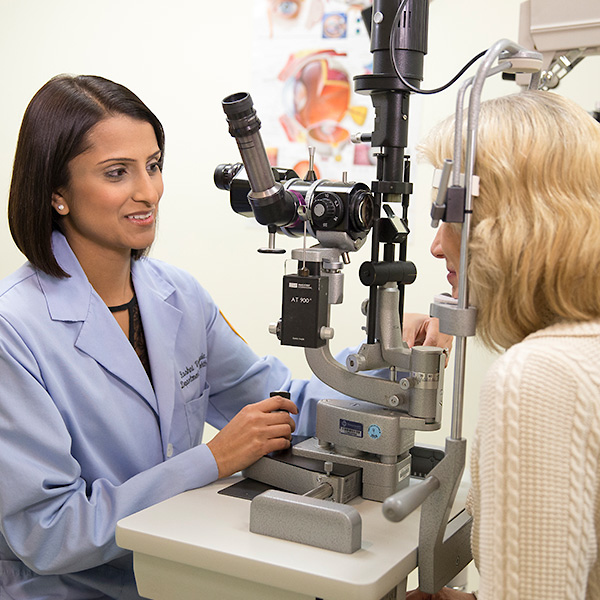Epiretinal Membrane
Overview and Facts about Epiretinal Membrane
Epiretinal membrane (ERM), sometimes referred to as a macular pucker, is fibrous tissue that develops on the surface of the eye’s retina in the macular area.
Depending on the severity of the condition, ERM can cause disturbances in vision, notably central vision, or no symptoms at all. If you notice changes in your vision, it’s important to consult your doctor.
Signs and Symptoms of Epiretinal Membrane
Signs and symptoms of ERM include blurry vision or changes in central vision, but it is also common for your side or peripheral vision to remain unaffected.
Signs and symptoms of an ERM include:
- Decreased central vision, often noticed when reading or driving a car
- Blurry vision
- Double vision
Causes and Risk Factors of Epiretinal Membrane
Advancing age is the most common risk factor for ERM. If you have eye or vision problems, ERM can develop later in life, usually before age 50.
Other risk factors for developing ERM include:
- Retinal vascular diseases often associated with diabetes
- ERM in one eye, which increases the risk of ERM in the other eye
- Eye surgery
- Eye injury
- Posterior vitreous detachment, or the separating of gel found at the back of the eye from the retina
Tests and Diagnosis of Epiretinal Membrane
ERM is relatively easy to diagnose and is often discovered during routine eye exams before symptoms begin. Doctors sometimes use optical coherence tomography (OCT) to view the retina and help diagnose ERM.
Treatment and Care for Epiretinal Membrane
Doctors usually do not recommend treatment for ERM when there are no symptoms; surgery is necessary in less than 20 percent of ERM diagnoses.
Vitrectomy is the surgical procedure used to treat ERM. During this procedure, the surgeon makes small incisions in the affected eye and then removes the fluid and the fibrous membrane. This is usually an outpatient procedure.
Aftercare generally includes eye drops or other medications to help the eye recover, as well as homecare instructions provided by your doctor.

